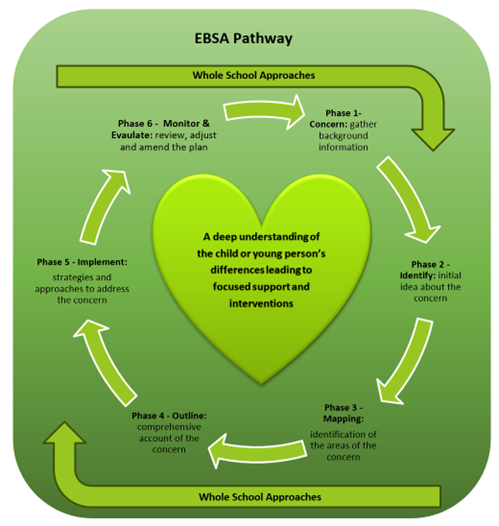When attendance is compromised because of EBSA, or indeed any medical issue, then there is a statutory duty for both school and local authority to deliver education, which can lead to a lack of clarity in relation to roles and responsibilities.
Section 100 of the Children and Families Act, 2014 places a duty on schools to make arrangements for all pupils with medical conditions in terms of both physical and mental health. Whilst Section 19 of the Education Act (1996) requires local authority to arrange suitable (so far as health allows) full-time (if suitable) education for children who would otherwise not receive education because of their illness. The courts have considered the circumstances where the Section 19 duty applies. Caselaw has established that a local authority will have a duty to provide alternative education under Section 19 if there is no suitable education available to the child which is reasonably practicable for the child to access.
The 1996 Education Act (Section 7) also places a legal responsibility upon parent and carers to ensure that their child receives an appropriate, full time and effective education (suitable to their educational needs). In England, the vast majority of parents fulfil their parental responsibility in relation to education by putting their child on a school roll, and ensuring that they attend regularly. However, if a child who is on a school roll and fails to attend regularly then it is possible that the parents will have committed an offence contrary to s444 Education Act 1996, unless one of the four statutory defences apply.
This Pathway clarifies what schools can expect of the local authority and what the local authority must expect from schools in relation to these duties. It also clarifies what parents can expect and, crucially, their role in supporting their child to access their school. This will in turn guide all stakeholders, not least children and families, in understanding what support they should expect to receive, when, where and from whom.
Whilst a child or young person experiences EBSA they remain on the role of school and their responsibility. School must ensure that they continue to:
- carry out welfare checks.
- develop an Individual health care plan in partnership with the school, parents, pupils, and any relevant healthcare professional (where appropriate).
- liaise with outside agencies to ensure that actions are undertaken.
- provide educational and other ordinarily available activities.
- monitor progress.
- consider any unmet learning needs and put appropriate steps in place for identifying and implementing appropriate support.
- coordinate SEN provision as appropriate and review needs at the SEN dupport and education, health and care (EHC) plan levels.
Lincolnshire’s EBSA pathway is a graduated response (follows an assess, plan, do, review cycle) that is focused on facilitating a step-change in how we support children and young people through:
- meaningful and robust early intervention through effective whole school systems.
- clear understanding of individual needs and contexts.
- collaborative, person-centred working with parent/carers and the child or young person.
The pathway considers each stage of EBSA and the steps to be taken. The EBSA pathway is a wraparound approach of proactive support. Throughout this is the emphasis on the need for a return to school, alongside support strategies and interventions and adaptations within the school and home environment.

